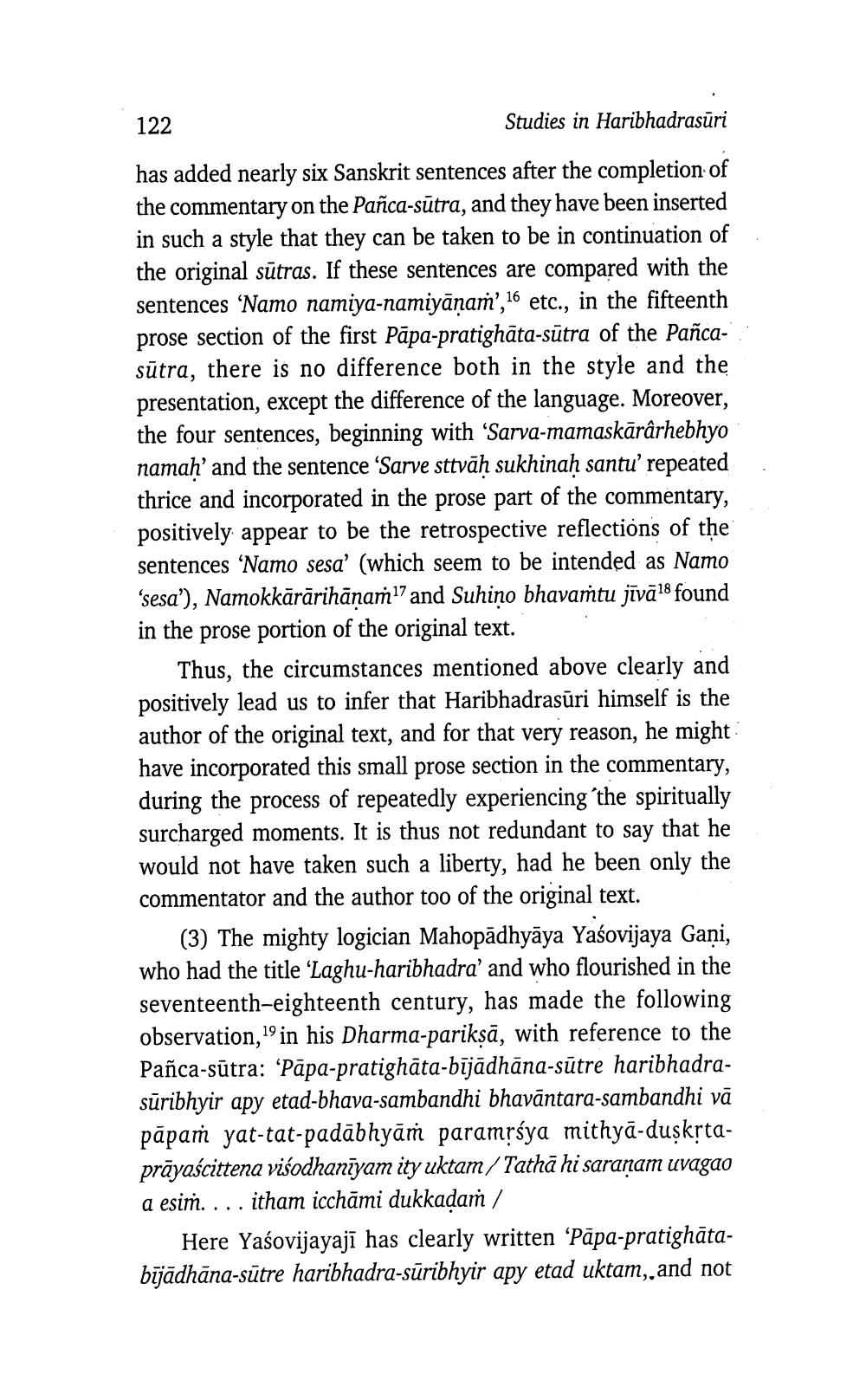________________
Studies in Haribhadrasūri
122
etc.,
has added nearly six Sanskrit sentences after the completion of the commentary on the Pañca-sutra, and they have been inserted in such a style that they can be taken to be in continuation of the original sutras. If these sentences are compared with the sentences 'Namo namiya-namiyāṇam',16 in the fifteenth prose section of the first Papa-pratighāta-sūtra of the Pañcasutra, there is no difference both in the style and the presentation, except the difference of the language. Moreover, the four sentences, beginning with 'Sarva-mamaskārârhebhyo namah' and the sentence 'Sarve sttväḥ sukhinaḥ santu' repeated thrice and incorporated in the prose part of the commentary, positively appear to be the retrospective reflections of the sentences 'Namo sesa' (which seem to be intended as Namo 'sesa'), Namokkārārihāṇam1 and Suhino bhavamtu jīvā18 found in the prose portion of the original text.
Thus, the circumstances mentioned above clearly and positively lead us to infer that Haribhadrasuri himself is the author of the original text, and for that very reason, he might have incorporated this small prose section in the commentary, during the process of repeatedly experiencing the spiritually surcharged moments. It is thus not redundant to say that he would not have taken such a liberty, had he been only the commentator and the author too of the original text.
(3) The mighty logician Mahopadhyaya Yaśovijaya Gani, who had the title 'Laghu-haribhadra' and who flourished in the seventeenth-eighteenth century, has made the following observation, 19 in his Dharma-parikṣā, with reference to the Pañca-sūtra: 'Papa-pratighāta-bījādhāna-sūtre haribhadrasuribhyir apy etad-bhava-sambandhi bhavāntara-sambandhi vā papaṁ yat-tat-padābhyāṁ paramṛśya mithya-duskṛtaprayaścittena viśodhaniyam ity uktam/Tathā hi saraṇam uvagao a esim.... itham icchami dukkaḍam/
Here Yasovijayaji has clearly written 'Papa-pratighātabījādhāna-sūtre haribhadra-sūribhyir apy etad uktam, and not




